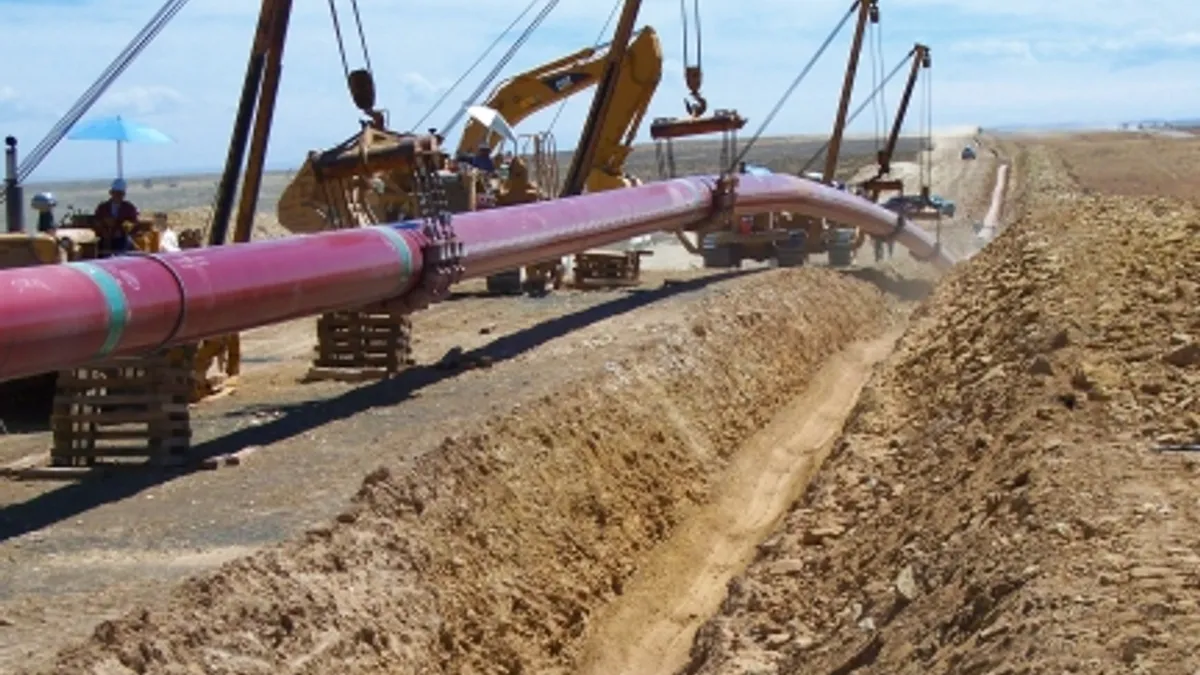Dive Brief:
- The Ohio Environmental Protection Agency has proposed a $2.3 million fine related to Energy Transfer Partners' construction of the Rover Pipeline, according to Southern Business Journal.
- State EPA Director Craig Butler has reportedly asked the Ohio Attorney General to get involved in the case, as the pipeline developer has resisted paying the fine.
- This is not the first trouble Rover has faced: Over the summer, the West Virginia Department of Environmental Protection told ETP it needed to halt work on a portion of the 700-mile line until it was in compliance with its water quality permit.
Dive Insight:
Energy Transfer says the Rover Pipeline is expected to be complete and operating by March 2018, but after construction mud got into nearby wetlands the state of Ohio has placed developers under additional scrutiny.
ETP has resisted paying fines, saying it is working with federal regulators to meet its environmental commitments. Whether the state has authority to fine the pipeline company is a key to the dispute, as developers say the Federal Energy Regulatory Commission holds that authority.
Southern Business Journal reports ETP is also resisting applying for storm water permits from the state.
The Rover pipeline will transport up to 3.25 billion cubic feet/day of natural gas to markets in the Midwest, Northeast, East Coast, Gulf Coast and Canada. The system will gather gas from processing plants in West Virginia, Ohio and Pennsylvania for delivery to the Midwest Hub near Defiance, Ohio.
Almost 70% of the gas will be delivered via interconnects with existing pipelines in Ohio and West Virginia. About a third of the gas will be delivered to markets in Michigan through an interconnect with the existing Vector Pipeline.
Rover's issues in West Virginia resulted from sediment and erosion control measures that did not comply with West Virginia the state's water regulations. After correcting violations, ETP was allowed to continue construction in August.














